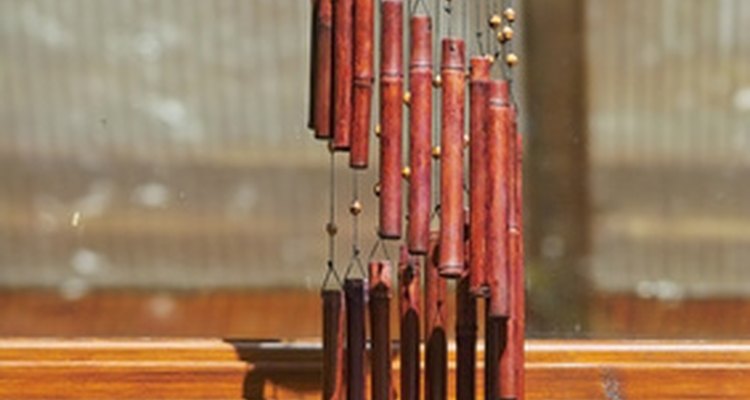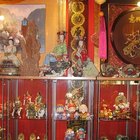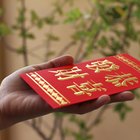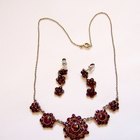
Housewarming presents have a long history as tokens of welcome and symbols of future blessings. The actual roots of some traditions are unclear while others are very specific to a certain culture. Almost all of them have religious or superstitious meaning, but in modern times, they take on a more sentimental meaning.
Bread, Salt, Sugar and Wine
A gift of bread symbolizes the givers' wish that the new homeowners never go hungry while wine symbolizes the wish that they shall never thirst. Salt and sugar (or honey) represent the wish for flavor and sweetness in their lives. The origin of this tradition is disputed since food is a universal housewarming gift and these three are staples. One theory is that the emperor and empress of Russia would visit villages, and the people of the upper class would present them with bread and salt to show their hospitality, according to the Challah Connection website. Interestingly, newly married peasants received the same treatment.
Practical Matters
In India, giving utensils symbolizes good fortune for the new neighbors. In China, golden rice bowls and a rectangular rosewood tray are luxurious but functional. The custom may stem from a traditional Chinese belief that expensive gifts are more meaningful, since gold and rosewood are precious materials.
Symbolic Security
Some cultures give gifts that are believed to ward off evil spirits in the new home. Traditional Italian gifts that symbolize protection include a broom to sweep away lingering bad luck; a knife to defend against intruders; and a penny so that the recipient of the knife never finds himself on the other end of it. Other gifts, while not specifically for housewarming, can be used with rituals associated with banishing evil in the home. A Ganesha idol can be given to the new neighbors to use during the Hindu ceremony of Satyanarayan Puja. This ritual is performed in a new home during the holiday of Purnima and it involves prayers to Ganesha, Satyanarayana and the nine celestial beings that make up Navagraha. Bundles of leaves from the sage, sweetgrass, cedar and tobacco plants are used in the "smudging" ceremonies of several Native American tribes. The smoke from the burning leaves is said to drive away negative energy.
Other Gifts
Other symbolic housewarming gifts include a candle for light and happiness, olive oil for health and a wooden item for stability in the home. Some gifts have dual uses as well. A pinch of salt placed at the threshold is supposed to bring luck into the home, while a coin is said to bring wealth. A bouquet with an odd number of flowers symbolizes good fortune, but all plants are said to represent new life in the new house.
Related Articles

Traditional Chinese Wedding Gifts

Traditional Indian Wedding Gifts

Traditional Portuguese Wedding Gifts

Traditional Vietnamese Wedding Gifts

Romanian Orthodox Wedding Traditions

Jewish Engagement Gifts

Chinese Wedding Anniversary Gifts

What Are Popular Chinese Gifts?

Swedish Wedding Gifts

Muslim Wedding Etiquette

Traditional Japanese Wedding Gifts

What Is the Godparents' Responsibility ...

What Do the Five Almonds Mean at a ...

How to Give a Housewarming Speech

What Is an Appropriate Gift for a ...

Customary Nigerian Wedding Gifts

Philippine Wedding Gift Ideas

Traditional Indian Gifts for Babies

Difference Between Manmade & Natural ...

How to Prepare for Tet in a Vietnamese ...
References
Resources
Writer Bio
Megan Robb has been writing professionally since 2007. She loves art and literature, as well as volunteering for her local animal shelter. Megan's work has been featured on Cracked.com, "The Bushwick Review," GlobalGolf.com and Divot.com, as well as her own blog, Megan Robb: Writer Extraordinaire. She currently lives in Raleigh, N.C.
Photo Credits
wind chimes image by david hughes from Fotolia.com